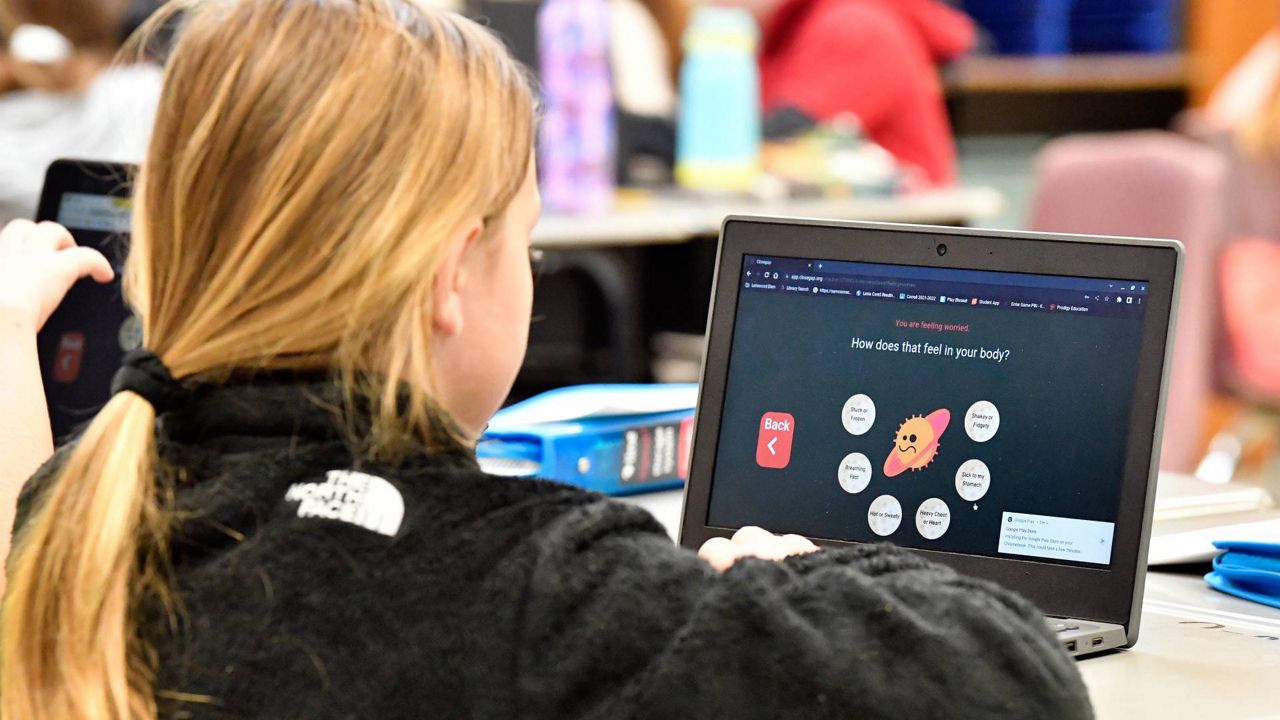
This story discusses data about suicide. If you or someone you know is struggling with suicidal thoughts, call the National Suicide Prevention Lifeline at 1-800-273-TALK (8255)
WISCONSIN — The Wisconsin Department of Public Instruction said new data suggests Wisconsin students “face significant mental health and emotional challenges.”
Wisconsin students reported significant mental health challenges in congruence with having less support at school and home, according to the Youth Risk Behavior Survey. The survey was given to students in the Wisconsin public school system in fall 2021 on a voluntary basis. The survey was conducted in collaboration with the Centers for Disease Control and Prevention.
“The YRBS provides a window into the mental health and emotional well-being of Wisconsin’s youth,” DPI said.
DPI reported that female students, students who identify as lesbian, gay or bisexual, students of color, students with health conditions, students receiving special education services and students facing food insecurities faced more mental health challenges. These groups also have less support, according to DPI.
“When we talk about our youth mental health crisis, we must also talk about the LGBTQ+ youth and other marginalized students in our classrooms across Wisconsin,” State Superintendent Dr. Jill Underly said. “Learning environments that foster a sense of belonging take on a different significance for LGBTQ+ kids and students of color because the world at large is not always safe for them. The reality is that hateful rhetoric and misguided policies are only exacerbating the stress this vulnerable population of students already feel.”
About half of the students surveyed — 52.2% — said they had “significant problems with anxiety;” 80.5% of students surveyed who identified as lesbian, gay or bisexual reported having “anxiety challenges.”
Two-thirds of female students surveyed — 66.2% — said they have experienced anxiety.
About one-third — 33.7% — of students surveyed said they felt “sad or hopeless almost every day for more than two weeks in a row.” That number is up by 5.2% from 2019. DPI said that’s the highest rate since the YRBS was first conducted. Among those students, 66.1% identified as lesbian, gay or bisexual.
Of female students surveyed, 46.1% of them said they felt “sad or hopeless.”
Of all students surveyed, 18.1% said they seriously considered attempting suicide in the last year — the highest rate reported since 2003; 8.5% said they attempted suicide. About half of lesbian, gay and bisexual students — 48% — said they “seriously considered or attempted suicide;” that’s four times higher than their peers. 22.4% of lesbian, gay and bisexual students said they attempted suicide.
Female students were more than twice as likely to “seriously consider suicide” than their male peers, at 24.6%; 11.4% of female students said they attempted suicide.
“Our children and youth in Wisconsin are in crisis, and they have been for too long. It is past time to take drastic measures to do something about it,” Underly said. “We must focus our efforts on what will create the most impact, because our kids are hurting and what we have done as schools and communities has not been enough to prevent that.”
DPI said school districts should “implement policies and practices that support belonging at school, to encourage open dialogue with family members and school staff about feelings and worries, and to work to ensure students can identify supportive adults at home and in school.”
DPI specifically noted that inclusive policies and affirming practices are needed to “promote the health and safety of all students,” but especially students who identify as LGBTQ.
“As adults and leaders in our communities, we must care for all children, and that means we must commit to doing the work necessary to foster belonging for every child in every school, and in every community,” Underly said.
DPI’s 2023-25 budget request included a $235.8 million increase, which would support mental health services for students both in- and out-of-school time. The request also included $36 million in aid for school-based mental health professionals.
“I implore you to picture a child in your life and consider that this is them, and if not, it very well could be their friend, or your neighbor’s child experiencing this hurt and isolation. We must do better. Their lives literally depend on us as adults coming together to solve this crisis,” Underly said.








